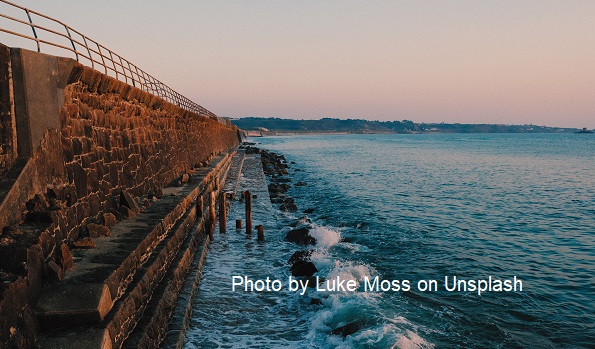UK Border Force authorities have been spotted carrying out “pushback drills” in the Channel after the Home Secretary expressed an ambition to return boats to French waters. Human rights groups and the UN refugee agency say pushbacks would endanger lives and violate international law. Meanwhile, France remains opposed to any such plans and claims it is doing the maximum to patrol borders. The UK proposes funding for “asylum reception centres” in France while heavy-handed evictions continue in Calais.
Images and footage taken in the English Channel on 13 September show the UK Border Force carrying out drills using jet skis to turn around packed dinghies. These “pushback drills” followed a statement from the Home Office that said Border Force staff are being trained to employ “turn-around” tactics at sea. According to The Guardian, “training, which is weather dependent, is due to conclude this month, with use of the tactics ready to deploy as soon as practical and safe.” Human rights groups, the UN refugee agency (UNHCR) and French officials however, have all expressed concern about the safety of such tactics. NGO Alarm Phone said: “Pushbacks are frightening, dangerous, often deadly, undertakings. They are a clear violation of human rights, not least the right to seek sanctuary.” A former Border Force chief stated that trying to force back unseaworthy, overcrowded boats would be “highly dangerous”. French Interior Minister Gérald Darmanin said that “safeguarding human lives at sea takes priority over considerations of nationality, status and migratory policy”.
The UNHCR has noted that pushbacks would be contrary to international maritime law. “Once a boat enters UK territorial waters, the UK’s primary responsibility for search and rescue is triggered,” a UNHCR spokesperson said. “Under maritime law, states are obliged to proceed as swiftly as possible to rescue anyone in distress at sea, if it is safe to do so, and to disembark them safely.” Analysis from the UK Parliament Library points out that not only are pushbacks incompatible with international law, their implementation would depend on France’s consent for vessels to be returned to its waters.
UK posturing on pushbacks has faced opposition from French officials, who say such a policy would endanger lives and undermine cross-Channel cooperation. After the UK Home Secretary rebuked France for not doing its part to curb migrant departures and threatened to pull funding, Gérald Darmanin tweeted that “France will not accept any practice contrary to the law of the sea, nor any financial blackmail.” France’s Interior Ministry pointed out that it has more than doubled the resources deployed along France’s northern coast. The considerable securitisation of the coastline has included increased patrols involving 670 police officers and gendarmes, as well as drones, fences, and thermal cameras. A forthcoming UK aid package of 54 million GBP – that which the UK has threatened may be a casualty of the diplomatic spat between the two countries – is also intended fund a network of asylum reception centres in Northern France. These would be used to encourage migrants to seek asylum in France, be transferred to European countries that they have passed through, or to accept “voluntary return” to third countries.
According to France’s Interior Ministry, Franco-British cooperation has increased the “prevention rate” – that is, the proportion of attempting crossing thwarted by French authorities – from 52% in 2020 to 62% in 2021. French media however has reported that “France has a policy of not intercepting or turning back migrant boats unless they ask for help, and instead escorts them to British waters.” French police patrolling the coastline say that their role in intercepting migrants ends as soon as they reach the water, and that they do not arrest people trying to make the crossing.
Channel crossings have increased significantly since the end of 2018, despite risks posed by icy waters, strong currents, and heavy maritime traffic. About 14,300 people have arrived in Britain by boat from France this year, some 6,000 more than in the whole of 2020. From 9 to 13 September, 143 people were intercepted and brought back to France. Since 2018, French authorities have confirmed 11 deaths and three disappearances on this route, though real numbers are likely to be much higher. The recovery of a man’s body in the Channel on 12 September illustrated again the perilous nature of the Franco-British strait. For NGO Channel Rescue, the authorisation of pushbacks not only poses a deadly threat but also highlights “[…] an urgent need for safe and legal routes for those wishing to claim asylum. The securitisation and militarisation of the border must end.”
Meanwhile, the destruction of makeshift settlements by police has continued in Calais. More than 80 people were evicted on 14 September, followed by a further six on 16 September. In a press release, NGO Human Rights Observers highlighted the excessive use of force by police and the violation of several laws.
For further information:
- ECRE, UK: Plans to Return Boats Face Headwind as Channel Crossings Rise, Discouragement of “Illegal” Arrivals Continues, NGOs Call for Safe Routes, Home Office Spends Millions Deporting Hundreds, September 2021
- ECRE, UK: Asylum Seekers Waiting While Home Office Seeks EU Readmission Deals, Asylum Backlog at Record High, Website Discourages Afghans from Coming, September 2021
Photo by Luke Moss on Unsplash
This article appeared in the ECRE Weekly Bulletin. You can subscribe to the Weekly Bulletin here.

